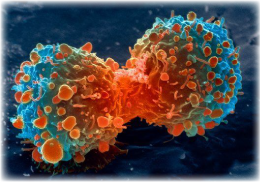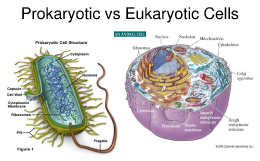|
THE GREEN BLEND: SCIENCE
Honors Biology with Lab
 In recent decades, our knowledge about the microscopic, molecular, and physical world has dramatically expanded. In this class each student will acquire both a deep understanding of biology and biochemistry and an appreciation of life's wonder and majesty. In recent decades, our knowledge about the microscopic, molecular, and physical world has dramatically expanded. In this class each student will acquire both a deep understanding of biology and biochemistry and an appreciation of life's wonder and majesty.
Students new to science and those with previous knowledge are equally welcome. Each lecture begins with broad foundational concepts and then delves into the topic in greater detail. Lectures feature video, graphics, and PowerPoint presentations. Students will be provided with beautiful printed materials—graphics depicting cells, chemical compounds, biochemical processes—plus in-class note-taking sheets, and worksheets to be completed at home. Topics covered:
- Fall Semester: molecular biology, basic chemistry, biochemistry (proteins, fats, carbohydrates, enzymes), the cell, cell membranes, osmosis, diffusion, protists, respiration, photosynthesis, meiosis, mitosis, DNA replication, protein synthesis.
- Spring Semester: genetics (classical and molecular), phylogeny, all the anatomical systems (digestion, respiratory, nervous, endocrine, reproductive, muscular/skeletal, etc.), plants and ecology.
Texts to purchase
Here are the items needed for Honors Biology — all links below are to the correct editions on Amazon:
Also for Biology, your student will need a "D" ring binder, section dividers, and transparent sleeves (sheet protectors).
This honors-level class moves at quite a clip, and the schedule alternates 90-minute lectures on odd weeks (1, 3, 5, etc.) with 120-minute classes including lab on even weeks (2, 4, etc.).
Class activities:
- Periodic in-class quizzes will be administered in the form of solo and small-group activities and games. The objective of these quizzes will be learning and mastering the content, not generating a grade.
- Between classes, students will interact with the teacher and other students online, hear lectures, view images, and ask and answer questions.
- Students will be assigned three in-depth research projects and small topics to research independently.
- There will be 6-8 tests provided to parents to administer at home as they wish: open book, closed book, as a learning tool, as a grade generator, or any combination.
 Students will be expected to complete four to five hours of work at home each week. Homework will consist of reading, annotating text, watching videos, completing worksheets, doing independent research, writing lab reports, and studying. Please note: The class aligns with SAT II standards for those who wish to take the subject test. Standardized testing is not required to take this class. Students will be expected to complete four to five hours of work at home each week. Homework will consist of reading, annotating text, watching videos, completing worksheets, doing independent research, writing lab reports, and studying. Please note: The class aligns with SAT II standards for those who wish to take the subject test. Standardized testing is not required to take this class.
Labs
Each lab will correlate to class content. Over the course of the year, students will:
- have 15 lab sessions, each including one or more labs;
- use the scientific method to analyze data and draw conclusions in written reports.
|
|
|
Our approach to ...
Science
Sciences at The Blend aim high. At the same time, we provide in-depth studies of the discipline for two kinds of students:
- those new to the formal study of science;
- those who have already studied science deeply for years.
Our courses employ college texts, websites from universities, AP-level labs, and in-depth explorations. All content is taught by subject-matter experts who are passionate about their disciplines. In order to ensure learning and mastery of concepts, moreover, the content is taught in a tiered fashion — laying foundational concepts, building up and delving deep into the facts, and reinforcing by looping back to essential concepts covered earlier in the course.
These methods ensure that no student is left behind. Rather, students come away with a full picture of the science and the interconnectedness of topics. Students with more science acumen can learn deeply while students new to the discipline learn comprehensively.
A more detailed look at our methods:
- All courses are taught through class lectures, readings, video, images, animations, in-class note-taking sheets, worksheets, and beautiful printed materials depicting abstract concepts such as cellular activity, chemical compounds, biochemical and physical processes, etc.
- Students are assigned in-depth research projects to deepen their understanding of the history of science and the development of scientific knowledge. All students are required to present in class and online.
- Labs correlate to class content: 15 lab sessions, each including one or more labs. Students use the scientific method to analyze data and draw conclusions in written reports.
- Tests: 6–8 tests provided to parents to administer at home as they wish—open book, closed book, as a learning tool, as a grade generator, or any combination.
- Periodically our instructors give in-class quizzes.
- Homework: four to five hours of per week—reading, annotating text, watching videos, completing worksheets, doing independent research, writing lab reports, and studying.
- Our courses align with SAT II standards for those who wish to take the subject test. Standardized testing is not required to take this class.
[This instructor] runs a fantastic biology class. Her enthusiasm is readily passed on. The material can be challenging, but she takes the time to explain things in a way that the student understands, even on her own time before or after class. She uses a wide variety of printed materials, videos, PowerPoint slides—all together they paint a clear picture that really facilitates learning. I have found that my 13-year-old son had not just memorized the material but actually understood it. For instance, when he came across unfamiliar questions on a practice test, he was able to reason his way with confidence to the correct answers.
—Mom of 13-year-old son, homeschooler
|
|
![]()